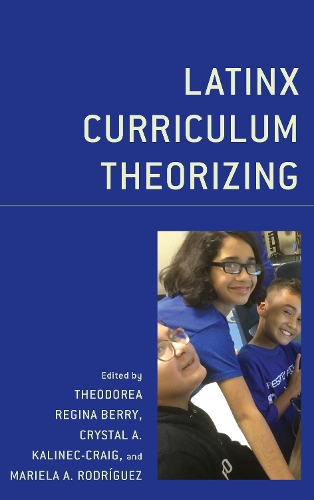
Latinx Curriculum Theorizing
(Hardback)
Publishing Details
Latinx Curriculum Theorizing
By (Author) Theodorea Regina Berry
Edited by Mariela Rodrguez
Edited by Crystal A. Kalinec Craig
Contributions by Martha Allexsaht-Snider
Contributions by Ann M. Avils
Contributions by Richard D. Benson II
Contributions by Juan F. Carrillo
Contributions by Erica R. Dvila
Contributions by Lynette Guzmn
Contributions by Alba Isabel Lamar
Bloomsbury Publishing PLC
Lexington Books
5th February 2019
United States
Classifications
Professional and Scholarly
Non Fiction
Educational strategies and policy: inclusion
Educational strategies and policy
306.430973
Physical Properties
Hardback
186
Width 161mm, Height 229mm, Spine 19mm
413g
Description
This edited volume is a collection of empirical scholarship that focuses on curriculum as knowledge connected to the Latinx diaspora from three perspectives: content/subject matter; goals, objectives, and purposes; and experiences. In an effort to fill a void in scholarship in curriculum studies/theory for/from Latinx perspectives, this book is a beginning toward answering two important questions: first, what is the significance of the presence and absence of Latinx curriculum theorizing And second, in what ways is Latinx curriculum theorizing connected to curriculum, as a general concept, schools purposes, goals, and objectives and curriculum as autobiographical This book opens a door into understanding curriculum for/from an important population in U.S. society.
Author Bio
Theodorea Regina Berry is professor and chair of the Department of African American studies at San Jose State University. Crystal Kalinec Craig is assistant professor of mathematics education in the Department of Interdisciplinary Learning and Teaching at the University of Texas at San Antonio. Marela A. Rodriguez professor in the Department of Educational Leadership and Policy Studies and associate dean of teaching, learning, and professional development for the graduate school at the University of Texas at San Antonio.
